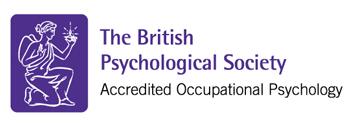Course information
Department
Length
1 year full-time
Course overview
Shape the future of work by training as an Occupational Psychologist in the Institute of Management Studies (IMS). Gain the scientific knowledge, practical skills, and professional network to challenge the status quo and offer innovative workplace solutions.
Occupational Psychologists specialise in human behaviour at work, understanding how people act and interact as individuals, in teams, and in organisations. The field brings together academics and professionals who use science and research to help improve the world of work, and answer questions like:
- Who would be best for a given job?
- How can companies use Artificial Intelligence to help select the best job candidates, or manage their employees?
- How should companies manage, promote, and pay their people?
- What is a healthy workplace?
- Where do people perform at their best?
- What is good leadership?
- How can we spot problematic leaders?
- How do we coach people to improve their work-life and performance?
You will benefit from our more than 25 years of experience in shaping the next generation of occupational psychologists, our vast alumni network, and our industry connections. This programme is accredited by the British Psychological Society(BPS) and their Division of Occupational Psychology (DOP).
You will study in the Institute of Management Studies (IMS), a vibrant environment for the study of people, behaviour, and change. The institute brings together academics in occupational psychology, economics, marketing, consumer psychology, and entrepreneurship.
Professional certifications
You will also have the opportunity to obtain a number of BPS certificates. These are provided for free so you can hit the ground running as a practising occupational psychologist when you graduate. Training is delivered in the summer by a leading occupational psychology consultancy. You will obtain BPS certificates in “Test User: Occupational, Ability” and “Test User: Occupational, Personality”. These qualifications recognize you as an expert in the administration, scoring, and interpretation of ability tests and personality questionnaires. The training is useful for those who wish to learn about or work with psychometric tests.
Our Specialisms
Our program is taught by a group of academic practitioners with specialisms in computational psychometrics and organisational wellbeing.
Computational psychometrics combines psychological theory with machine learning and artificial intelligence methodologies to measure individual differences in personal attributes like personality and cognitive ability. Applied computational psychometrics is often used in Human Resources technology, for example, video-based assessments or AI-based video interviewing.
Organisational wellbeing uses psychology to improving the performance and health of people in a broad range of work environments. For example, Contextual Behavioural Science theories, and interventions such as acceptance and commitment therapy are used to predict and enhance wellbeing and performance. Health and wellbeing can also be studied in social entities like organisations by looking at interpersonal and structural antecedents of wellbeing, and how they affect specific groups.
Shape the future of work
This program is designed to introduce you to the core elements of occupational psychology. It will equip you to work in research and applied settings to help shape the future of work. Whether you are looking to be self-employed, in-house, or a consultant in HR, tech, coaching, development, academia, or other sectors, you will gain the skills and knowledge to study and influence human behaviour.
- Learn about core topics in occupational psychology including coaching, talent management, individual differences, and leadership.
- Expand your statistical analysis skills and learn how to analyse human behaviour. Our programme is suitable for those with and without prior statistics training.
- Conduct your own research project to answer questions about people and behaviour at work.
- Connect to practitioners in London, the UK and the world to learn how they are applying research in their practice, get inspired about career options, and build your network.
We equip you with a theoretical and empirical knowledge base that you start applying to real-world scenarios during your degree. So you can start practising as an occupational psychologist straight away.
Contact the department
If you have specific questions about the degree, contact Dr Nigel Guenole.






